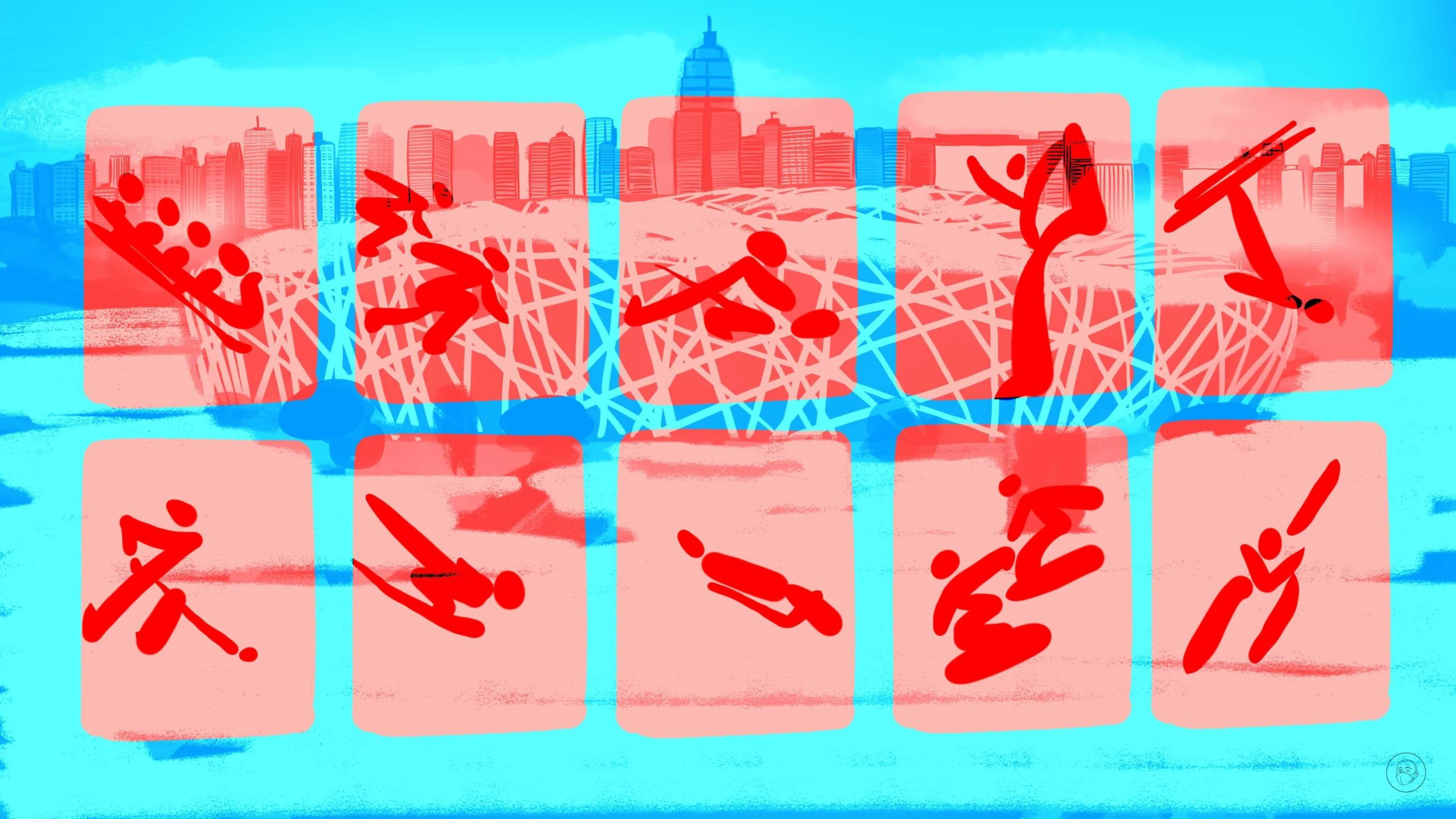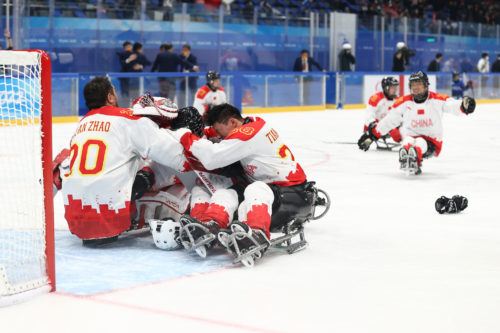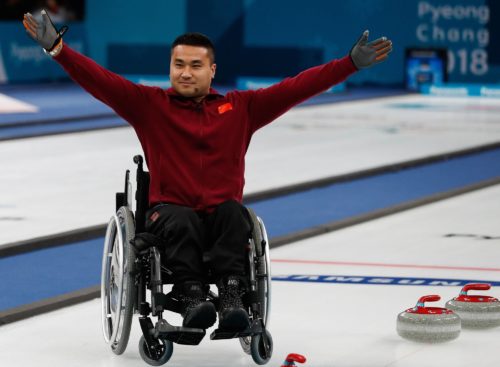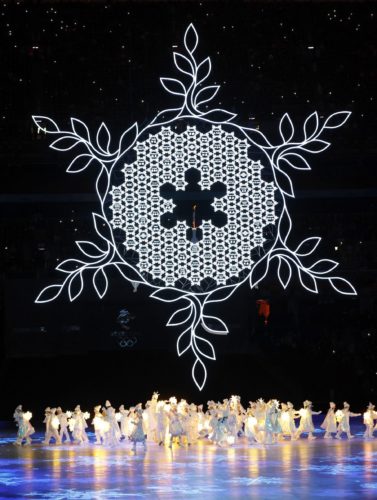Team China’s athletes to watch at Beijing 2022
Eileen Gu leads the contingent, and may emerge from these Olympics as one of its biggest stars. But there are other athletes worth watching, too.

The expert prediction models have China winning six gold medals at these Winter Olympics. Eileen Gu (谷爱凌 Gǔ Àilíng) may very well account for half of those. Unlike the majority of freestyle skiers, who typically compete in either one discipline or double up in the slopestyle and big air categories, Gu skis the halfpipe in addition to slopestyle and big air — and has a genuine shot at gold in all three.
Plenty has been said about what Gu means to the geopolitical conversation, as well as about her endorsement deals, which bring in a reported $35 million per year. But on the snow, she is destined to become one of the very top athletes of these Winter Olympics — from China or elsewhere — and all at the tender age of 18.
China has already redefined what success at these Games will mean — Xi Jinping’s comment last week that he doesn’t care how many gold medals China wins very much set the tone — but China has nevertheless pulled out all the stops to prepare an elite delegation of athletes for their home event. 2022 has perhaps come a shade too soon for those efforts to translate into genuine progress in the medal table. As a result, expect to see China flourish in all the usual places: speed skating — both the long and short forms — figure skating, and freestyle skiing.
Over half of China’s 62 Winter Olympic medals have been won in short track speed skating, including 10 of 13 golds, and that trend looks set to continue. Wǔ Dàjìng 武大靖 — the Usain Bolt of these Olympics — is the reigning Olympic champion in the 500m, a distance in which he holds the world record, recording a blistering speed of 45.56 kilometers per hour. Wu returns to headline a strong contingent of 10 short track skaters for China, combining some old faces with new talent.

Rèn Ziwēi 任子威 could well provide Wu Dajing’s stiffest competition in the 500m, and he’s also a threat in the longer distances of 1,000m and, in particular, the 1,500m, where he’s ranked No. 1 in the world. Zhāng Yǔtíng 张雨婷 is the pick of a strong female contingent, which also includes Fàn Kěxīn 范可新, a perennial contender at the world level who has yet to make her mark at the Olympics. Could this be a glorious swan song to her stellar career? Meanwhile, expect China to be in contention in all the relay events, too. A personal recommendation: if you’re looking for one sport to watch at these Winter Olympics, short track speed skating is the one. It’s fast, exciting, controversial, and packed with both collisions and disqualifications. Whatever crowd is allowed to attend will be sure to cheer loudly through their masks — and they should have plenty of home successes to celebrate (even if the Netherlands will probably win most of the events).
Figure skating is another historically strong sport for China, but is fiercely competitive at the elite level. Suí Wénjìng 隋文静 and Hán Cōng 韩聪 won the silver medal in the pair’s event four years ago and are again expected to challenge for gold. But standing in their way are the Russian world champions Anastasia Mishina and Aleksandr Galliamov. That could be quite some battle at the Capital Indoor Stadium and is China’s best hope for a figure skating medal. But there could be even more fireworks in the men’s event between two-time OIympic champion Yuzuru Hanyu of Japan — an enormously popular figure in China — and three-time world champion Nathan Chen of the U.S., who will also draw support from the homeland of his parents. If quad jumps are your thing, this one’s for you.
Freestyle skiing is one of the expanded sports at these games, and China is far from a one-woman show. In the halfpipe, Eileen Gu remains China’s best hope, but Zhāng Kěxīn 张可欣 and Lǐ Fānghuì 李芳慧 are both capable of challenging for the podium. The host nation has chances in both the men’s and women’s aerials. The male quartet of Jiǎ Zōngyáng 贾宗洋, Qí Guǎngpú 齐广璞, Sūn Jiāxù 孙佳旭, and Wáng Xīndí 王心迪 could all be in the mix for a medal on their day. Meanwhile, Xú Mèngtáo 徐梦桃 — silver medalist from Sochi eight years ago — and Kǒng Fányù 孔凡钰 should contend on the women’s side. China has previously found success converting gymnasts into aerial athletes. But with only one gold from 11 freestyle skiing medals, China would dearly love to improve that ratio.

The fourth of China’s historically solid sports is the longer version of speed skating. Gāo Tíngyǔ 高亭宇 was the first Chinese male to win a medal in the sport when he took bronze four years ago in the 500m and has been rewarded for his progress as one of two flag bearers for China at today’s opening ceremony. Níng Zhōngyán 宁忠岩, a character who lists both bearded NBA star James Harden and Chinese President Xi Jinping as among his idols, could perform well in either the 1,000m or the 1,500m. On the women’s side, Tián Ruìníng 田芮宁 is China’s best hope at the shorter distances, with Lǐ Qíshí 李奇时, Hán Méi 韩梅, and Guō Dān 郭丹 all harboring podium pretensions elsewhere.
Snowboarding is a sport where China could see some real breakthroughs. Cài Xuětóng 蔡雪桐 and 2018 Olympic silver medalist Liú Jiāyǔ 刘佳宇 are well established threats in the women’s halfpipe. And look out for 17-year-old Sū Yìmíng 苏翊鸣 in the men’s slopestyle and big air competitions. He won gold at a World Cup event in the U.S. two months ago and has been bundled onto the hype train by Chinese media in recent days. It’s not unusual for teenage athletes to come away with gold in some of the snowboard disciplines, but Su is someone who could be around for several Olympic cycles.
The most interesting area where China could show some progress, even if medals will likely remain out of reach, is in the sliding sports: bobsleigh, luge, and skeleton. Zhào Dān 赵丹, a female skeleton athlete, is China’s other flag bearer, a curious choice given her limited chances of winning a medal here. But home track advantage could mean that China throws up a few surprises. Though in this discipline, the biggest surprise is the fact that Gěng Wénqiáng 耿文强, who became China’s first and only World Cup winner in men’s skeleton at the end of last year, isn’t even on the team. Little has been said about why he failed to make the final cut, and while there were reports that he’d been outperformed in domestic trials by two other teammates, there’s always a feeling that some slightly more political decisions may have been made.
Speaking of political decisions, China will no doubt make a big deal of the fact that it has several athletes drawn from provinces across the country, including — for the first time — two Tibetans, plus five athletes from Xinjiang representing various ethnic minorities in the region. Dilnigar Ilhamjan (Dinigeer Yilamujiang) is China’s only Uyghur athlete and could yet play a leading role in the opening ceremony. On one hand, she represents, at the age of just 20, the future of China’s winter sports potential as the country looks to make inroads into new disciplines. But given her background, and China’s propensity to insert politics into these Olympics — as long as it’s politics the government agrees with, of course — she may be pushed to the forefront for other reasons.

I can’t finish without mention of perhaps the most fascinating of all the sports at these Games, ice hockey. Yè Jìnguāng 葉勁光 — better known among NHL fans as Brandon Yip, drafted by the Colorado Avalanche in the 8th round in 2004 — has been nicknamed “Captain China” for the leading role he’ll play on the men’s team. Nine months ago, China’s squad was looking at a massacre with its youthful, homegrown lineup facing the prospect of trying to contain NHL All Stars. But with the NHL players pulling out due to COVID reasons and China successfully recruiting a significant number of heritage players — all of whom will be using their assumed Chinese names at these Games — the matchups are looking considerably more competitive.
Introducing JIERUIMI Shimisi (Jeremy Smith), RUIAN Sipulaoer (Ryan Sproul) and OUBAN Yongli (Paris O'Brien) – just some of the names you'll see on Chinese hockey jerseys at the Olympics.
— Mark Dreyer (@DreyerChina) January 26, 2022
Two of China’s opponents, Canada and the U.S., have more talent in their lineup as well as some exciting stars of the future, but their lack of preparation compared with the fact that China’s squad has played together all season could be a crucial equalizer. China’s women got off on the wrong foot, losing 3-1 to the Czech Republic on Thursday, but then won 3-1 against Denmark earlier today.
Finally, with the curling competition already kicking off this week, China has found a new star in Fàn Sūyuán 范苏圆 in the mixed doubles event, who’s become an overnight darling of the Chinese internet thanks in part to two lengthy matches shown in primetime. Known for dressing up in traditional Chinese clothes in her spare time, Su represents the more modern face of winter sport for China. And with two wins out of her opening three games, the country will be hoping to see plenty more of her in the coming days.
Stay up to date with our Beijing 2022 coverage here.





